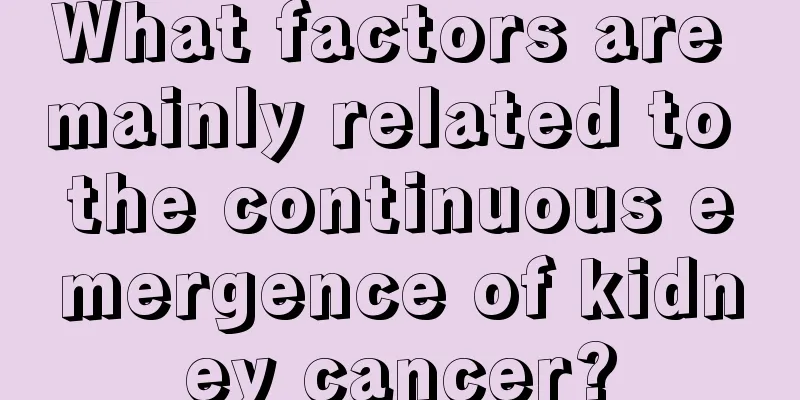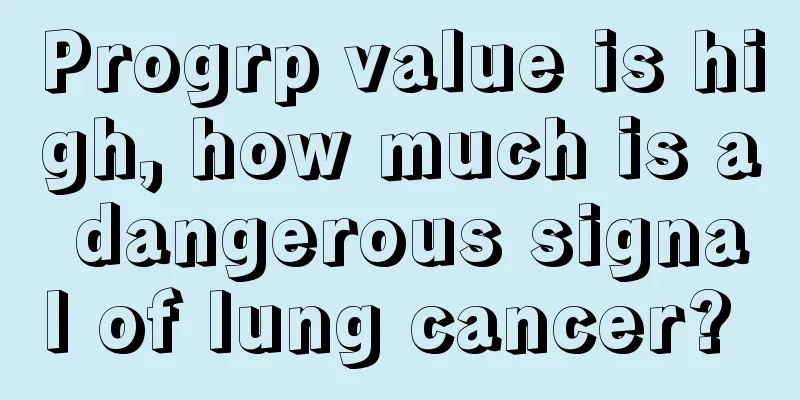What should I do if I have kidney cancer

|
What should we do if we have kidney cancer? This is something that must be paid attention to, because kidney cancer poses a great threat. If it is not treated in time, it will cause serious physical and mental damage to everyone, so we must pay special attention to it. In particular, we must understand what to do if we have kidney cancer. So what is the best thing to do if you have kidney cancer? Let's listen to the following suggestions given by experts. Surgery is usually the first choice for kidney cancer treatment and is currently recognized as a means of curing kidney cancer. Nephron-sparing surgery (surgery to preserve the kidney) or radical nephrectomy can be used for patients with early-stage kidney cancer. These operations can be performed laparoscopically or by traditional open surgery. Radical nephrectomy is usually used for patients with intermediate and stage kidney cancer, and this type of surgery is usually performed by open surgery. Energy ablation (radiofrequency ablation, cryoablation, high-intensity focused ultrasound) can be used for the elderly, frail or patients with small renal cancer (tumor diameter ≤ 4 cm) who have contraindications to surgery. The tumor recurrence rate after this type of treatment is slightly higher than that of nephron-sparing surgery, and the overall therapeutic effect is similar to that of nephron-sparing surgery. For patients with renal cancer who cannot tolerate surgical treatment, renal artery embolization can relieve the symptoms of hematuria through interventional treatment, which is a palliative treatment method. Currently, there is no recommended adjuvant treatment option for patients with early and intermediate renal cancer after surgery to effectively prevent recurrence or metastasis. Advanced renal cancer should be treated with a comprehensive approach with medical treatment as the main approach. Surgical resection of the affected kidney can help identify the type of renal cancer and reduce the tumor burden, and can improve the effectiveness of immunotherapy (such as interferon-α) or targeted therapy. Medium- and high-dose interferon-α (6 MIU to 9 MIU) or high-dose interleukin-2 are effective for patients with low- and intermediate-risk metastatic clear cell renal cell carcinoma, with an effective rate of about 15%. In December 2005, the US FDA approved and recommended eight targeted regimens, including sorafenib, sunitinib, temsirolimus, bevacizumab combined with IFN-α, everolimus, pazopanib, axitinib, and erlotinib, for first-line or second-line treatment of patients with metastatic renal cancer. What to do with kidney cancer: 1. Surgical treatment: For patients with advanced renal cancer who cannot be completely removed by surgery or have metastasized, some medical treatments can be used. Commonly used ones include medroxyprogesterone, interferon and interleukin-2, but the efficacy response is very limited. New targeted therapy drugs such as sunitinib, sorafenib and mTOR blockers that have been introduced in the past two years can effectively prolong the progression-free survival (PFS) of the disease. Existing studies have shown that an improvement of 1-2 months in PFS can improve the patient's overall survival time by 2.5-7.5 months, and can also improve the quality of life during survival. 2. Laparoscopic surgical treatment: The scope, requirements, safety and efficacy of laparoscopic radical renal resection are exactly the same as those of open radical renal resection. The surgical incision of laparoscopic radical renal resection is relatively small, and it has become the international gold standard for surgical treatment of smaller renal cancers. Nephron-sparing surgery can also be performed under laparoscopy, but the technical requirements are relatively high. The main problem at present is that it cannot effectively reduce local cooling to reduce renal damage caused by blood flow control. 3. Minimally invasive treatment: Radiofrequency ablation and cryotherapy are performed on smaller renal tumors through skin puncture or laparoscopic puncture under ultrasound guidance. Since this method is truly minimally invasive for renal cancer and its 5-year survival efficacy is basically similar to that of nephron-sparing surgery, it has become the latest and largest hotspot and direction in the international surgical treatment of small renal cancer. What should we do if we have kidney cancer? The most important thing is that we should actively choose the treatment method that suits us, because only early treatment of the disease can achieve better results. Finally, we would like to remind everyone that we must actively go to a professional tertiary hospital to treat this disease. |
<<: Which medicine is more suitable for kidney cancer
>>: How much does cryosurgery for kidney cancer cost
Recommend
When is the best age to correct buck teeth?
It is more common to see buck teeth in older peop...
What are the benefits of soaking dried olives in water
Olive is a kind of fruit, and people like to make...
How to grow pennywort
Pennywort, also known as mushroom grass, is a ver...
Can I eat shrimp after transplantation
Test tube transplantation can be understood as a ...
What are the dangers of ovarian cancer
The occurrence of ovarian cancer causes great dis...
How is rectal cancer diagnosed
In recent years, rectal cancer has become one of ...
Buffalo leather mat
In summer, the cool mat undoubtedly becomes a goo...
Headache, feeling uncomfortable and want to vomit
If multiple symptoms such as discomfort, headache...
There are three signs after a meal that indicate stomach cancer
There are a lot of sensational news nowadays. Gen...
What to do if the ear is swollen and painful
Ears are one of our five senses. However, due to ...
What is the success rate of knee replacement
Many patients do not pay attention to the existen...
What are the symptoms of poor digestive tract?
Nowadays, people are under great pressure in work...
How much does it cost to treat nasopharyngeal cancer and what methods are used
Suffering from nasopharyngeal cancer will have a ...
A complete list of seasonal vegetables in summer
If you pay close attention, you will find that we...
Is heart disease really hereditary?
Cardiovascular and cerebrovascular diseases are d...









